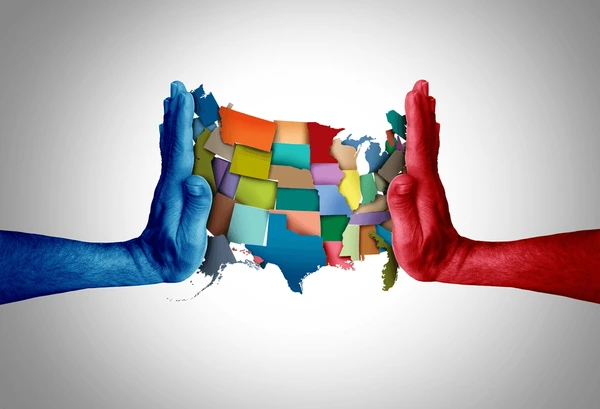The Resistance
How many times have you heard this?
“I don’t like what the Government is doing, so I will vote for the Opposition.”
What does the Opposition stand for? Will they change the thing that is irritating people? Will the Opposition fix the perceived problem? It doesn’t seem to matter. It is either all or nothing. Either they do what I want or I will switch sides.
If the person making the statement were to think about it, they would have to consider if the other side would do anything differently. We live in a country where both major parties are close to the centre and often adopt the same policy positions. There may be marginal differences in policies, but voting one out and another in might make no difference to the person’s concern.

Another slogan raised in the current election is “Are you better off than you were three years ago?”
It is totally false to ask the question. Governments do not control every aspect of our lives. The major international forces include Ukraine, Gaza, China and the chaos that is known as the United States. (“United?”. If so, against whom?) There is also the limitation of what governments can control. The Reserve Bank sets interest rates. Courts often decide controversial legislation. A referendum decided Aboriginal recognition.
The valid question is, would you be better off if the Opposition won the last election, but we have no way of knowing. Saying what they would have done retrospectively is like commenting on a game of football about what you would have done had you been a competitor. Interesting but not particularly relevant.
Another favourite is “Why doesn’t the Government do something?” It totally ignores the fact that the Government does not have unlimited power. They operate within the constitution and laws of the land. They have to comply with the limitations on their power.
Usually, the “doing something” will involve pleasing some people and hurting some others. The Government is supposed to rule for the majority, but it doesn’t mean that if 51% are in favour, the other 49% have to bear the cost. In any case, taking such a step often puts their re-election in danger. We had the example of Bill Shorten a few years back, proposing to do away with negative gearing, and the government failed in the election. If enough people dislike what you are doing, you won’t be given the power to do it. There does not have to be a majority of people upset. Enough people who are swing voters will stop an initiative dead in its tracks.
There is also the problem of change. Many people hate to see change even if it will benefit them. “Look at what happened when we invented social media. The world would be better if it never happened.”

Yes, change is often accompanied by teething problems, unexpected consequences and new problems. It may be difficult, but I suppose the invention of fire caused a few issues, too. Every change has a downside. The invention of the car came with road death. Planes crash. Boats sink. Sometimes wonder drugs have side effects. Would you like to live in a world without cars, planes, boats, and wonder drugs? Of course not.
It might be a better world if we didn’t have Facebook or X or Musk, but we don’t always get it right. That is no reason to stand in the way of all progress.
Yet another form of resistance is the “Why can’t the Government build roads, pay nurses more, put more phone operators on Centrelink?”
They can. The only tinsy winsy thing is that you must pay more tax. “But the tax avoiding multinationals should pay more tax.” Is the reply. The Tax Department calculates that tax avoidance by large companies accounts for half of the tax avoided. They have beefed up their audit team over the last few years and are clawing some of that back. It will require legislation to stop tax avoidance practices to make significant improvements, and the Opposition will not vote for them. Is it still the Government’s fault?
So what is the other half? Payments made in cash to small companies (Particularly tradies) are never shown on their books and are never taxed. Hands up anyone who has not paid money to a tradie for work around the house, or fixing the car, or a discount on some appliance. I see one hand. I will have your name forwarded to the Pontiff, and you should receive your sainthood in the mail.
We contribute to the tax that is never paid, yet complain that the Government is not catching tax avoiders—time to look in the mirror and see if you can find a hypocrite.
My final issue is the comment “We need to get rid of the waste in Department X.” Department X may be any Government Department or the ABC or someone the Government has some control over. There is always waste in a large organisation. In the best run company, government department or institution you can find inefficiency. The 80:20 rule applies. It takes 20% of the cost to remove 80% of the lost productivity and most organisations have done that. It is the 80% cost to remove the last 20% that brings the efficiency drive to a stop. By the time you get to 95% efficiency, it is cheaper to live with 5% inefficiency than to spend way more than you will save, by removing it. Trimming the last of the fat will probably cut away the meat.
At the election, I would like to see a party that tells us to start acting like adults. We need to look at solutions for housing problems, cost of living, immigration and Aboriginal affairs. None of them have easy solutions, but once we decide on a direction, no matter how painful, we support the party proposing the solution and pay the piper.
Of course, it will never happen. We are too concerned about what is good for us rather than what is good for society as a whole.






